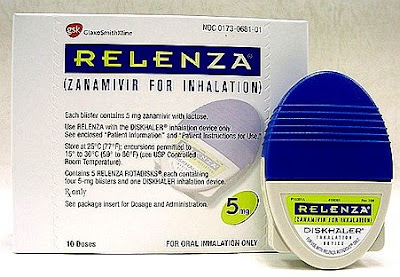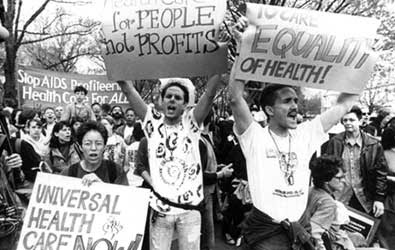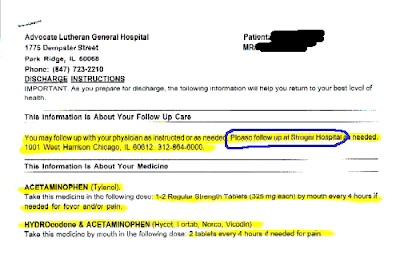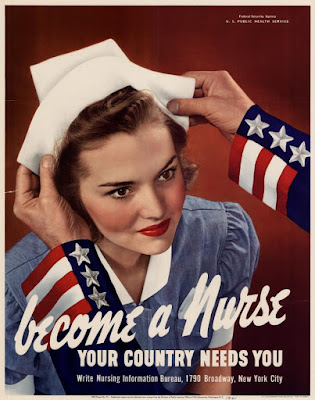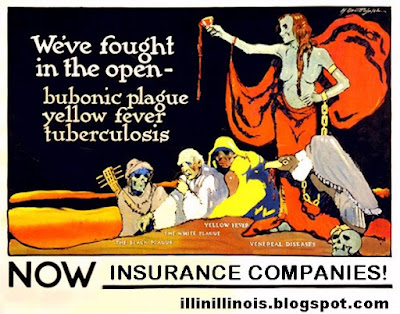 Uninsured Myths No. 3:
Uninsured Myths No. 3: "Doing without health insurance is a lifestyle choice."
FALSE. The Centers for Disease Control
reported in 2007 that nearly one in five Americans were doing without needed health care because of costs. "In 2005, more than 40 million adults did not receive 'needed services' because they could not afford them," the report said. "Nearly 15 million adults did not obtain eyeglasses, 25 million did not get dental care, 19 million did not get needed prescribed medicine, and 15 million did not get needed medical care due to cost."
Apologists for the status quo scoff. They like to tell you that people "choose" to go without health coverage and care. Those who say they can't afford it, these generous folks claim, are wastrels and spendthrifts. According to their judgmental thinking, unless you live in a SRO, eat only homemade gruel, get around by public transit and spend all your spare time trying to better yourself, you are frittering away funds that you ought to be spending to enrich insurance companies and the medical establishment. If you have a car, internet access or a cell phone, but no health insurance, they believe you have made poor financial choices.
Typically they have unrealistic ideas about the cost of health insurance and medical expenses vs. these so-called luxuries and uncompassionate attitudes toward the underemployed and the sick.
An upstanding
Dayton, Ohio, citizen, responded to a woman who said she had insurance but worried that she would not be able to meet her co-pay should she become seriously ill:
"So because of your economic lifestyle choices you think it's proper to force the rest of us to pay for you? Socialism at it's [sic] ugly best. You are no different than the welfare queens with their multiple children fathered by multiple absent men with their hands out for public assistance.
"You need to give up some non-essential items and save for the possibility of a large medical co-pay. Cell phone and cable tv would be a good start. That's probably over $1500 per year you could save."
Talk about ugly. And $1,500 would cover what? Perhaps, one C-T scan?
Louise, a Colorado insurance broker, often has reasonable things to say on health-care issues, despite her vested interests, but sometimes she lapses into
specious self-righteousness: How can people balk at the cost of doctor visits when most of the cars she sees on the streets are less than 10 years old? Louise asks. They must be choosing new automobiles over medical care, she reasons.
Huh? How do you know, Louise, that all those shiny cars aren't being driven by insurance executives, pharmaceutical big-wigs, high-priced doctors and for-profit medical administrators?
Newish cars on the highway say nothing about the circumstances of people who find it hard to cough up high medical fees. Not even if they were the ones behind the wheels. If you had to choose between reliable transportation so you could get to work every day, and money for a doctor you might never need, which would you choose? Most people don't expect to get sick, and few of us are handy enough with a wrench to keep an old beater going. There comes a time when putting more money into auto repairs isn't reasonable.
Computers are another target of the health-care scrooges, who apparently don't shop around for theirs. Haven't you heard of eBay? And I don't know where you are, but our internet service costs $20 a month. For job seekers, these are necessities. (To the nitwit who thinks I must have "means" since I have a blog — Blogger is a free service.)
And how can anyone believe, in 2009, that a cell phone is a luxury item? When was the last time you saw a pay phone?
If you have a 9-to-5 job and regular routines or are on welfare, maybe you can live today without a cell phone. If — like so many of the underemployed and uninsured — you move in the underground economy of temping, on-call gigs, entrepreneurial hustling and day labor, you need to be reachable all the time.
In Chicago, you can get a Blackberry with all the bells and whistles for less than $100 a month and a basic phone for $30. Nobody sells health insurance for that.
What's more, many folks who use cell phones but worry about doctor bills have given up their landlines to save money. According to the
Centers for Disease Control, one in six adults lives in a wireless-only household, and the percentage of people without health insurance is twice as high among that group as those with wired phones. In Illinois, the CDC
estimates, 16.5 percent of households use only cell phones.
Cell-phone use is highest among young adults, with more than one in three Americans aged 25–29 years and nearly 31 percent of those aged 18–24 years living in households with only wireless telephones.
The anti-reform lobby also likes to make much of the fact that some 29 percent of the uninsured are young people, claiming they're frittering away their incomes instead of making sacrifices to buy insurance. It's unclear how many fall into the category the insurance industry calls "
young invincibles" — people in their 20s who gamble on staying healthy — vs. those who truly have no choice. Even if it were true that these young folks choose to buy good times instead of insuring their health, everybody makes dumb decisions in their youth. That's why we don't let people drink till they're 21 or run for the Senate until they're 30. Isn't this another area where America should protect its future?
You'd think the sanctimoniously well-insured would have a little interest in their own well being. Stop worrying about what covering the uninsured might do to your wallet and instead think about what not covering them might do to your own health. Having good health insurance won't stop you from catching a contagious disease.
Large numbers of uninsured people increase
America's risk of epidemics (not to mention its vulnerability to biological attacks, such as the anthrax letters of 2001). When the uninsured get sick, they avoid or delay seeking treatment, and just try to go about their business, thereby spreading infection. That uninsured waiter, hairdresser or store clerk could give you strep throat, influenza and
tuberculosis.
No one chooses to get sick. But our current health-care system limits millions of Americans' choices when it comes to staying healthy.
